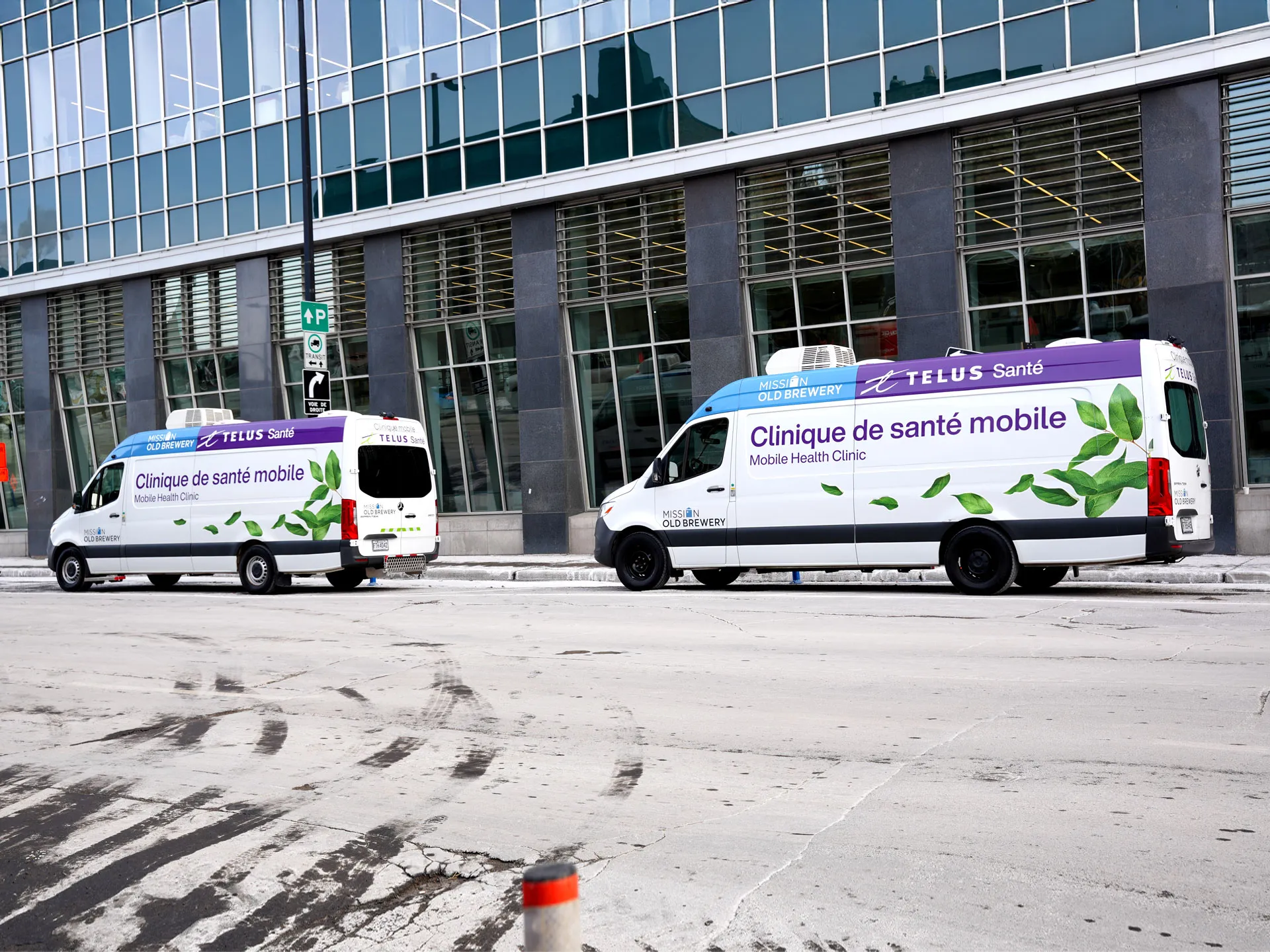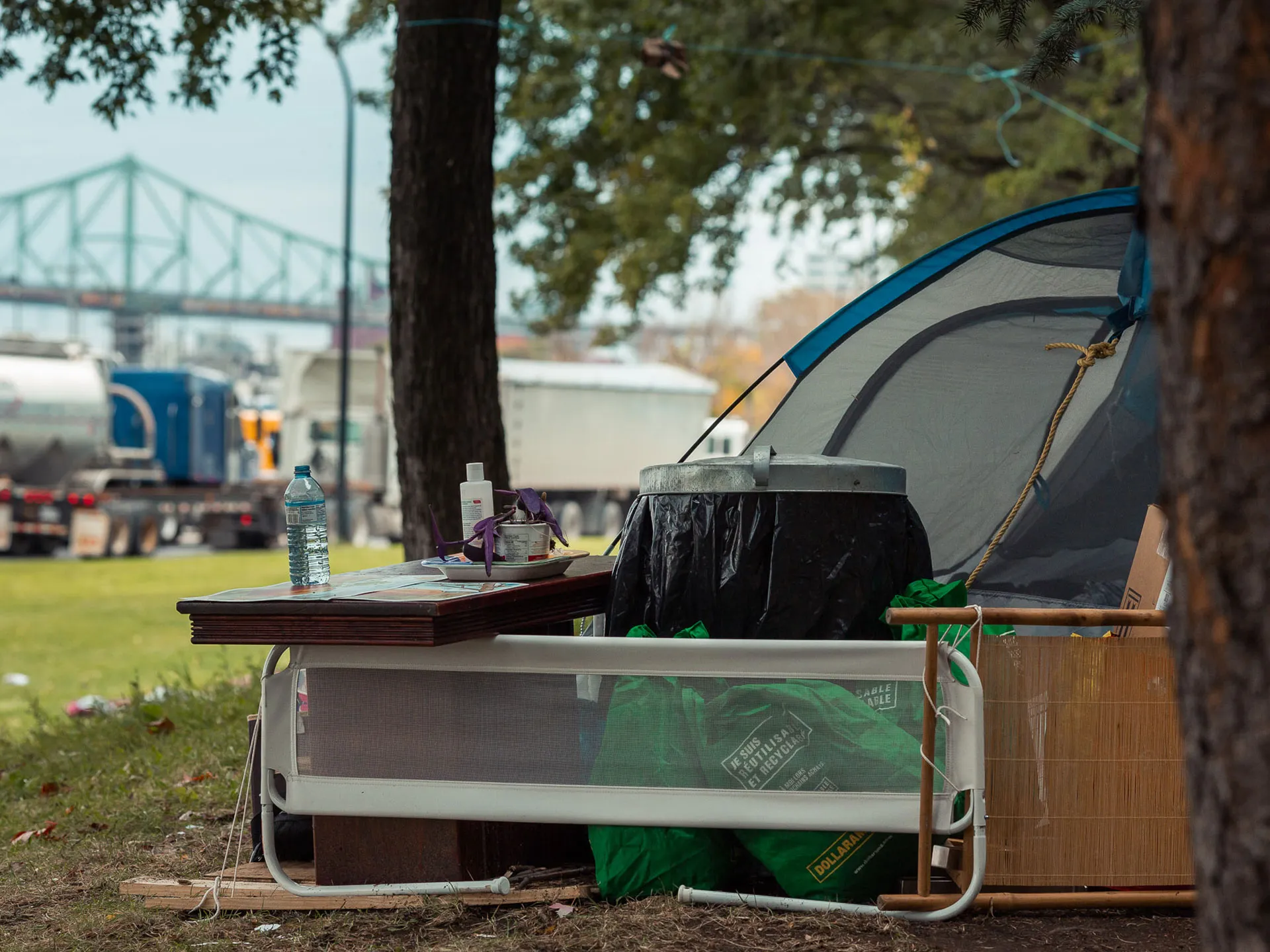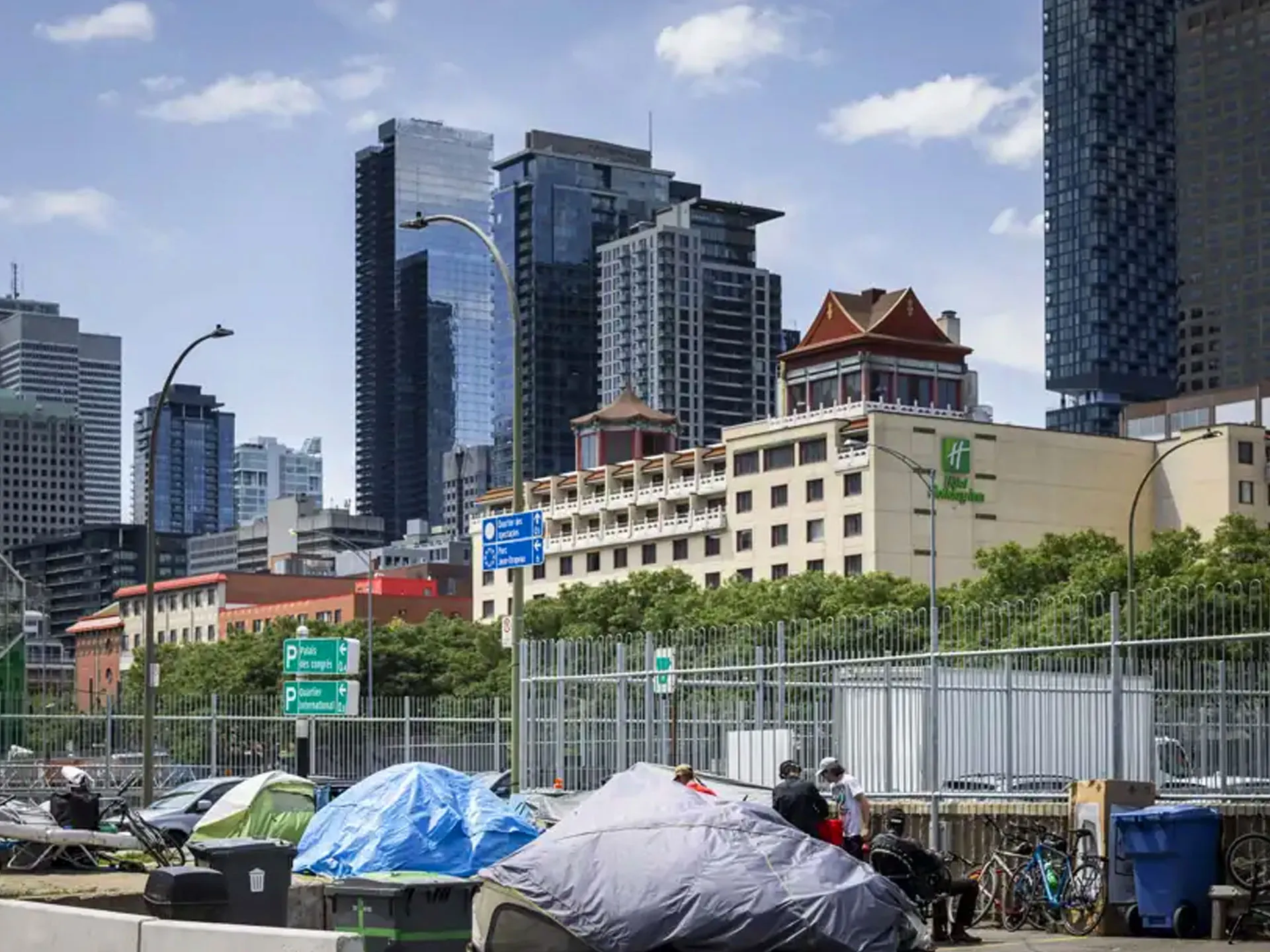
A winning formula for cohabitation

A makeshift camp near Notre-Dame Street in Montreal.
Despite the best efforts of community and government organizations, the homelessness situation in Montreal is dire. Every day, we see the plight of people who find themselves on the street, often for the first time. The causes of homelessness are many: losing a job, lack of access to mental health and addiction services, and above all, a shortage of social housing and affordable housing. It’s a heartbreaking picture. We need to apply all our compassion and creativity to find solutions, and quickly.
For years, we have been saying that the best response to this crisis and the resulting problems of cohabitation is to provide housing options for everyone. Housing is a fundamental right: everyone deserves a safe, stable place to live. Unfortunately, in the current housing market, this is more of a dream than a reality.
We have to make it a reality by recognizing housing as a genuine right. We need to invest massively to make social housing 20% of our housing stock, as a number of European countries have done. They have shown that it is possible to guarantee a roof over everyone's head through ambitious social policies and substantial investment in social housing.
In the meantime, what can we do collectively?
Passively watching the homelessness problem worsen will only exacerbate conflicts in public spaces. For now, we have no choice but to provide decent emergency housing services across the city for people experiencing homelessness.
What are the winning conditions for setting up shelters in residential neighborhoods like Rosemont, Ahuntsic, Verdun and Côte-des-Neiges?
Here are some of the requirements:
- 24/7 availability: The services must be accessible and secure at all times, without interruption.
- Dignity and privacy: The shelters must have appropriate, individual accommodations that give people a sense of security and privacy.
- Well-trained staff: The resource must have qualified staff who can guide residents towards permanent housing solutions.
- Quality food: Healthy, satisfying meals will encourage people to use the services regularly.
- On-site medical services: Healthcare services tailored to the needs of the population must be regularly available directly on site.
- Perimeter control: The premises and their surroundings must be kept secure.
- Communication: Local residents must be kept informed before and during the establishment of a shelter, there needs to be dialogue, and an emergency telephone number must be provided once the service is open.
- Adaptation: Each organization must adapt its services to the local neighborhood, taking into account its capacity to accept such services.
It must be borne in mind that emergency housing services provide much more than a bed for the night. For example, they help people complete the paperwork (which can be complex and time-consuming) needed to access housing: gathering identity documents, filing income tax returns, registering for a housing subsidy and looking for an apartment. As organizations dedicated to finding solutions to homelessness, it is our mission to help guide every person who is interested toward the limited housing options available today.
When people see a facility for people experiencing homelessness coming to their neighbourhood, it is natural for them to be concerned about safety. But if neighbourhoods simply shut the door to all such projects, this will only make the problem of homelessness in public spaces even worse. We need to find ways for emergency services and local residents to coexist throughout the city. By acting together, with humanity and resolve, we can improve the situation in the short term, while continuing to hope for a brighter future for all our fellow Montrealers.
Dernières nouvelles
-
 The Old Brewery Mission and TELUS Health for Good launch second mobile
The Old Brewery Mission and TELUS Health for Good launch second mobile -
 Homelessness in the downtown core: We must house, care and innovate
Homelessness in the downtown core: We must house, care and innovate -
 Meet Jean-François Dagenais, Vice President of Finance, IT and Facilities
Meet Jean-François Dagenais, Vice President of Finance, IT and Facilities -
 Old Brewery Mission unveils new employer brand
Old Brewery Mission unveils new employer brand -
 Another resounding success for the Ken Reed Golf Tournament: $334,091 raised for the Old Brewery Mission!
Another resounding success for the Ken Reed Golf Tournament: $334,091 raised for the Old Brewery Mission! - See all news